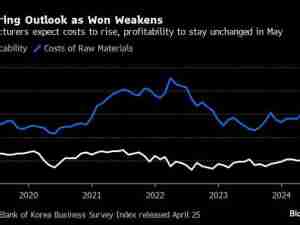China trade data underscores growth worries
posted by AJOT | Jun 09 2013 at 08:00 PM | International Trade
China's exports posted their lowest growth rate in almost a year in May while imports unexpectedly fell, government data showed on Saturday, underlining concerns that growth in the world's second-largest economy could slow anew in the second quarter.
Evidence has mounted in recent weeks that the economy is fast losing growth momentum as sluggish domestic demand fails to make up for lethargic export sales.
The latest figures, shorn of the hot money speculation and exports to warehouses but booked as sales that had inflated previous months' data, more accurately reflect the grim reality facing China's exporters.
"The trade data reflects the sluggish domestic and overseas demand, signalling a slower-than-expected recovery in the second quarter," said Shen Lan, an economist at Standard Chartered in Shanghai.
Data for May retail sales and industrial output, as well as investment and inflation, are due on Sunday and could provide more evidence of the slowdown.
Exports edged up 1 percent in May from a year earlier, the lowest growth since last July and against a median forecast in a Reuters poll of a rise of 7.3 percent. Data was even worse for imports - they fell 0.3 percent against expectations of a 6 percent rise.
The trade surplus was $20.4 billion for the month, compared with market expectations of $19.3 billion.
Exports to the United States, China's top export destination, fell 1.6 percent in May, the third straight month of declines, while those to the European Union, the second most important market, fell 9.7 percent, also the third straight month of declines.
However, in one bright sign, separate customs data showed that China's imports of major commodities rose in May compared with the previous month, helped by lower prices on world markets and pointing to resilient demand.
TESTING TIMES
It has been an uncomfortable few months for China's leaders as a raft of data has pointed to a lack of traction for growth.
"The domestic economy is facing great downward pressure and the stable development of foreign trade still faces great challenges," Vice-Minister of Commerce Zhong Shan said in a statement on the ministry's website (www.mofcom.gov.cn).
China's overseas demand had not recovered obviously while exporters faced more fierce competition in the global market, Zhong said.
However, Premier Li Keqiang struck a more upbeat note, being quoted by state television as saying that China's economy was generally stable, growth was within a "relatively high and reasonable range" and the employment situation was stable.
"There are increasingly intricate and complicated factors in the economy and we should strictly monitor the changes in the economic situation," said Li.
China needs to make use of liquidity already in the economy to support real economic development and curb over-capacity in certain industries, he added.
Surveys this month showed that China's factory activity shrank for the first time in seven months in May, with export orders falling, while growth in the services sector cooled.
A Reuters poll taken before Sunday's retail and industrial data shows industrial output is seen up 9.3 percent, unchanged from April, while growth in fixed-asset investment, one of the two main drivers of China's economy in 2012, likely rose 20.5 percent in the first five months of this year.
That would be equivalent to investment rising 20.2 percent in May from a year ago, Reuters' calculations showed, the slackest pace in at least three months.
Growth in retail sales is forecast at 12.9 percent in May, little changed from April's 12.8 percent and below last year's monthly average expansion of 14.2 percent.
The IMF and OECD last month cut their forecasts for China's 2013 economic growth to 7.75 percent and 7.8 percent, respectively.
China's annual economic growth had slowed to 7.7 percent in the first quarter from 7.9 percent in the previous quarter. The full-yea








